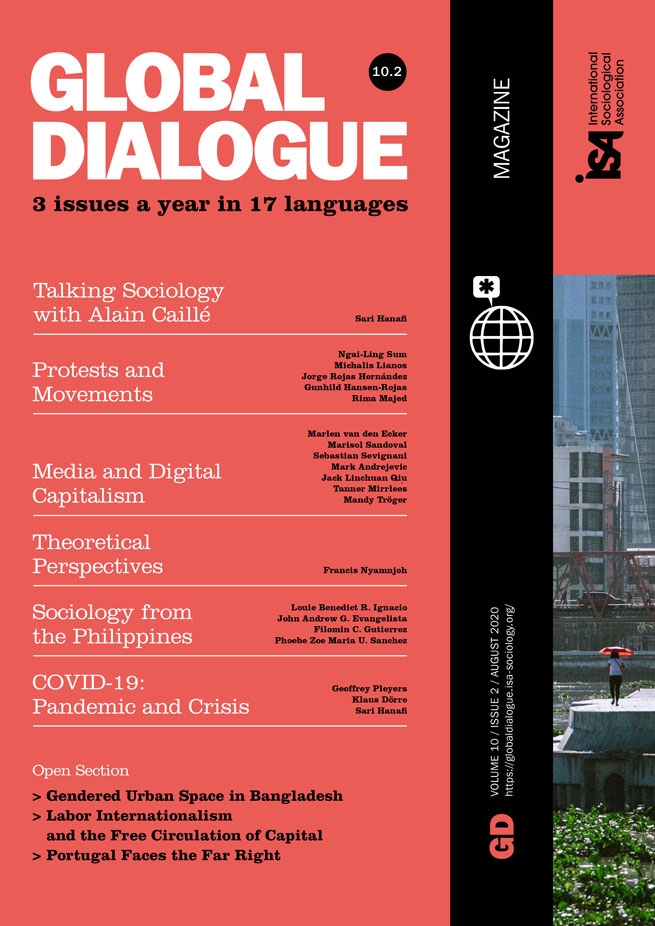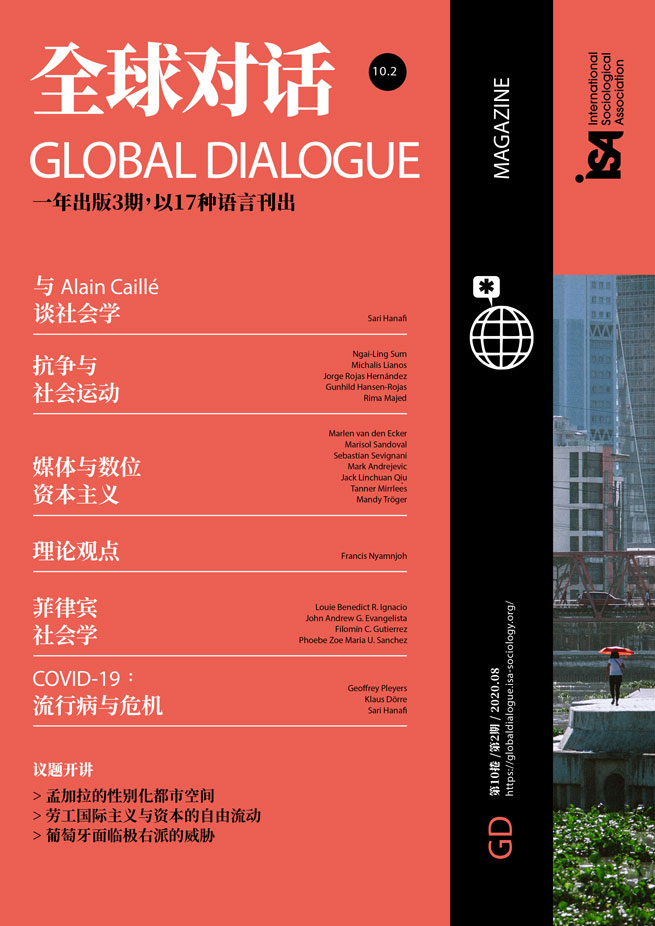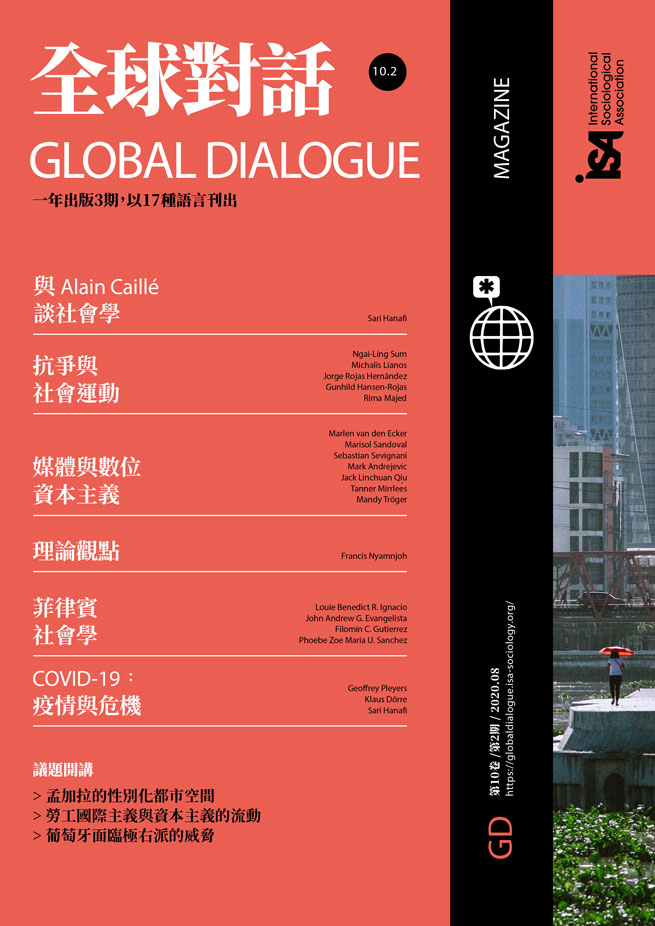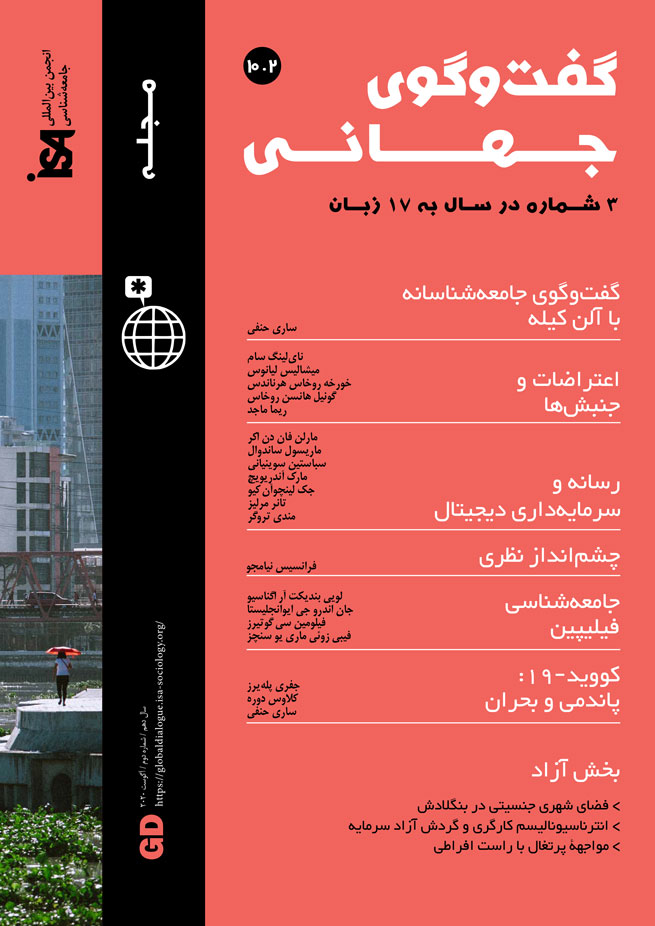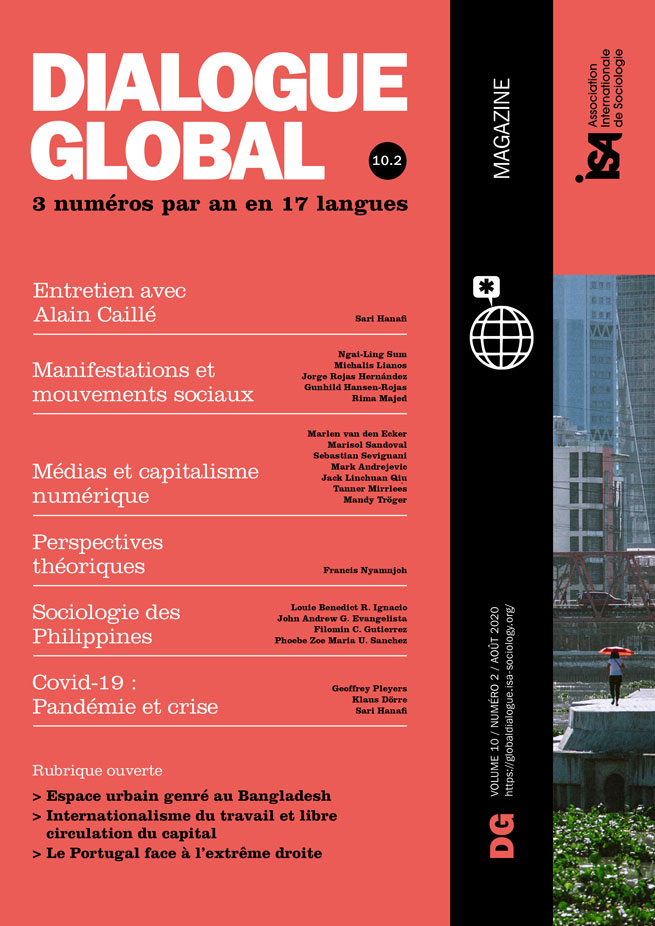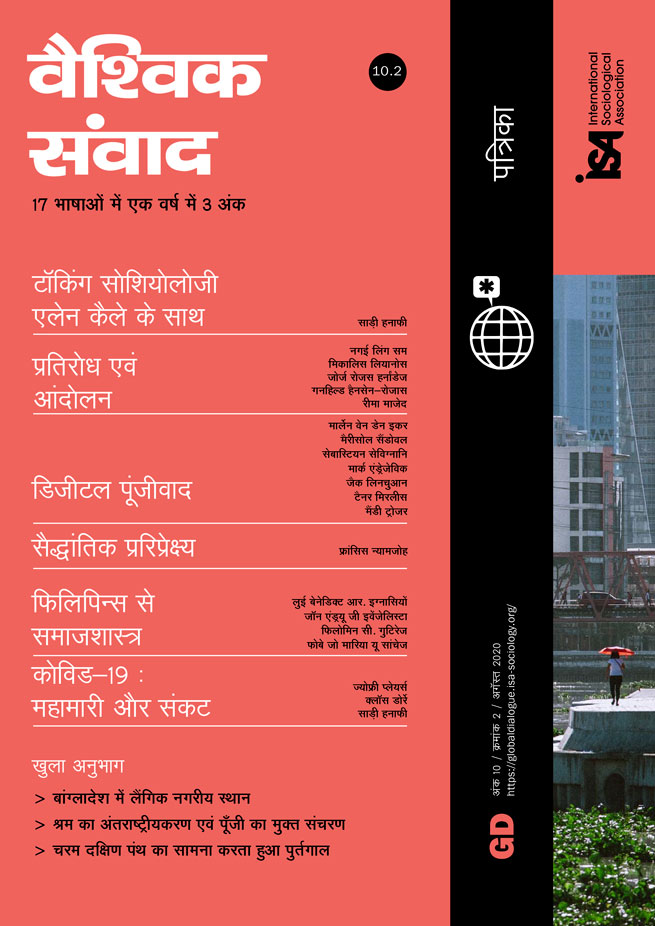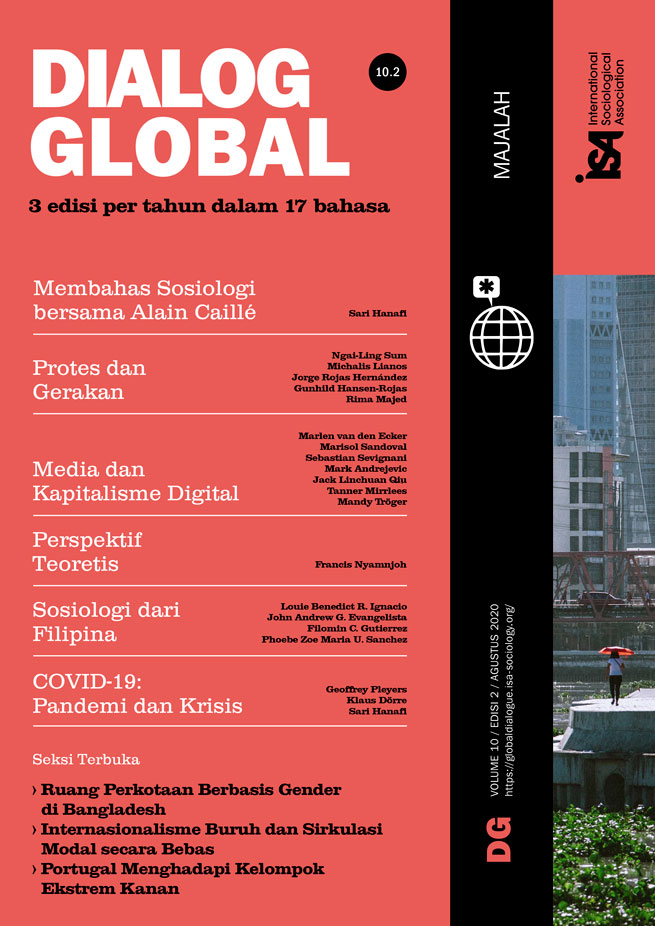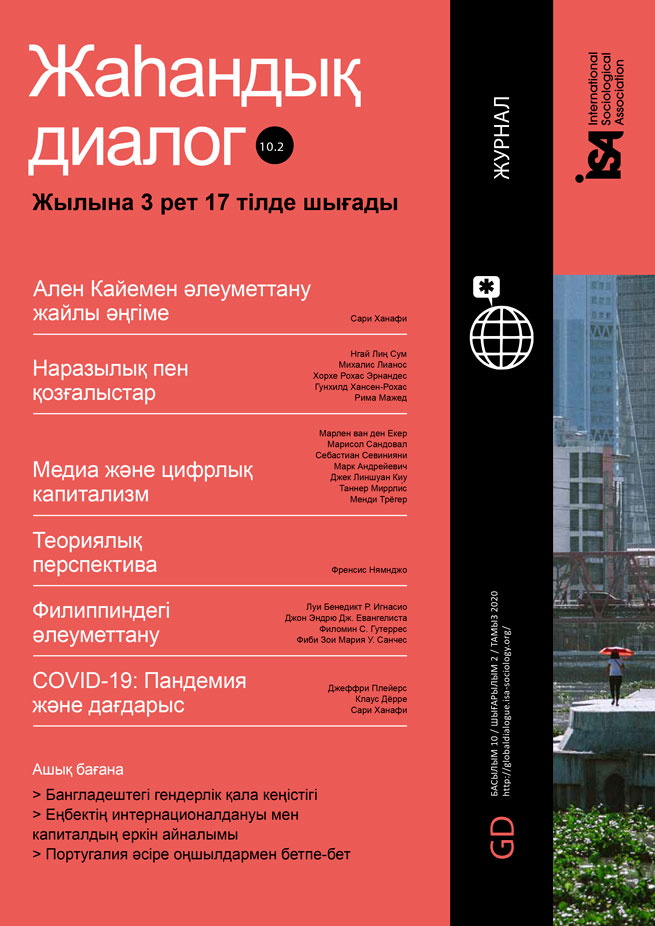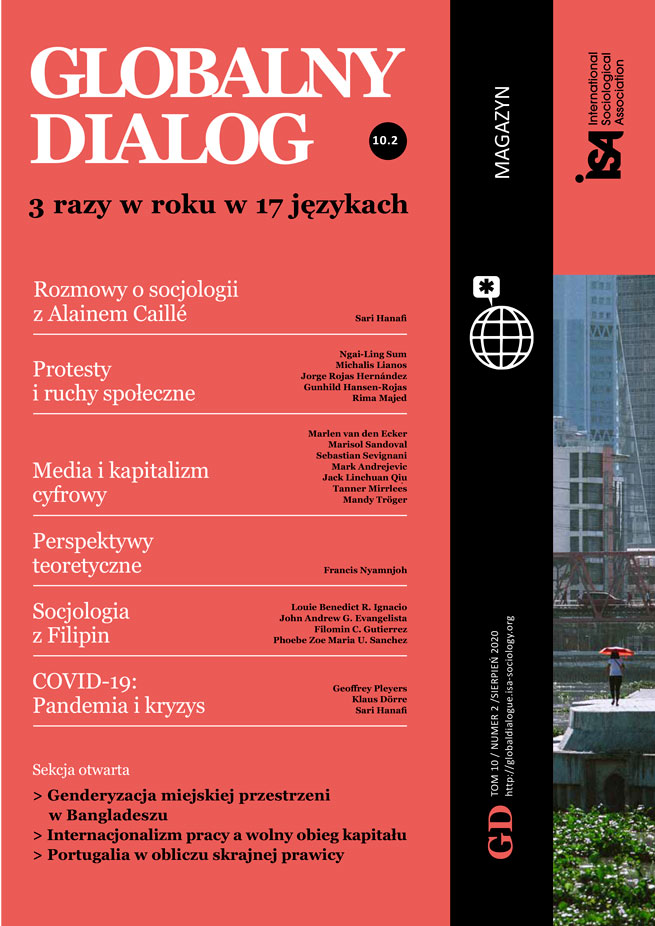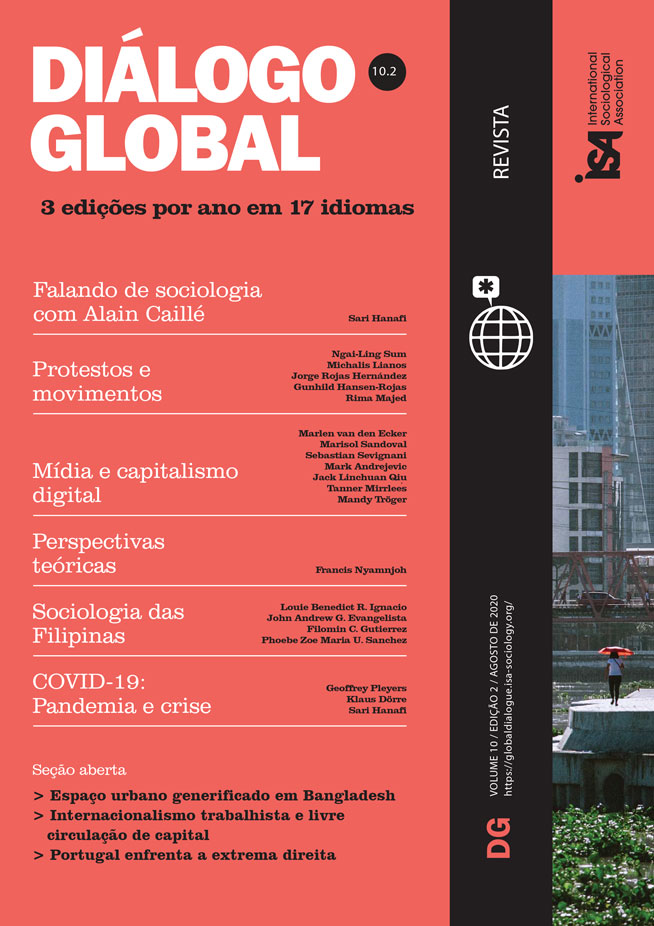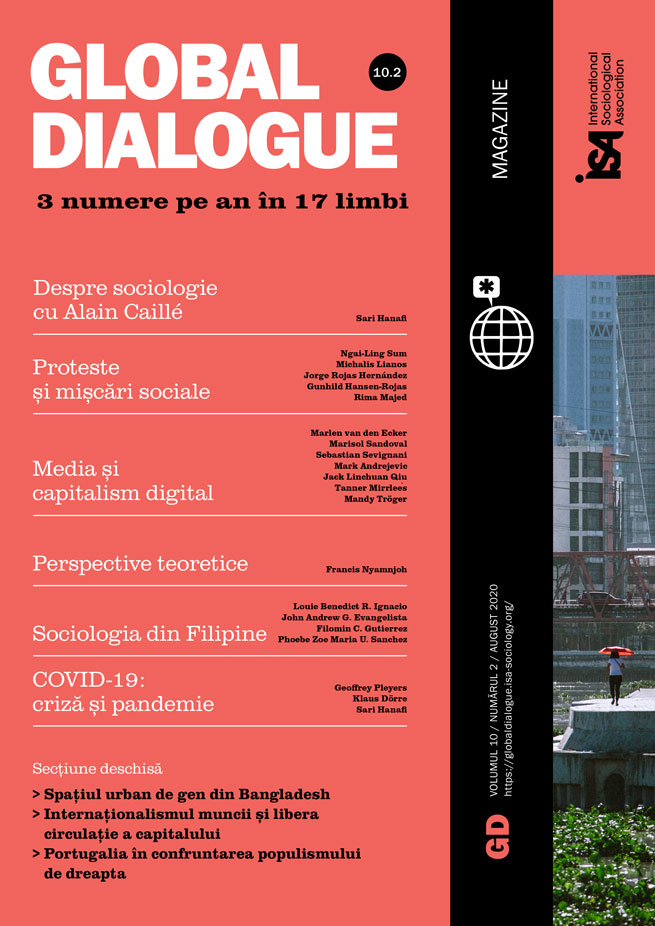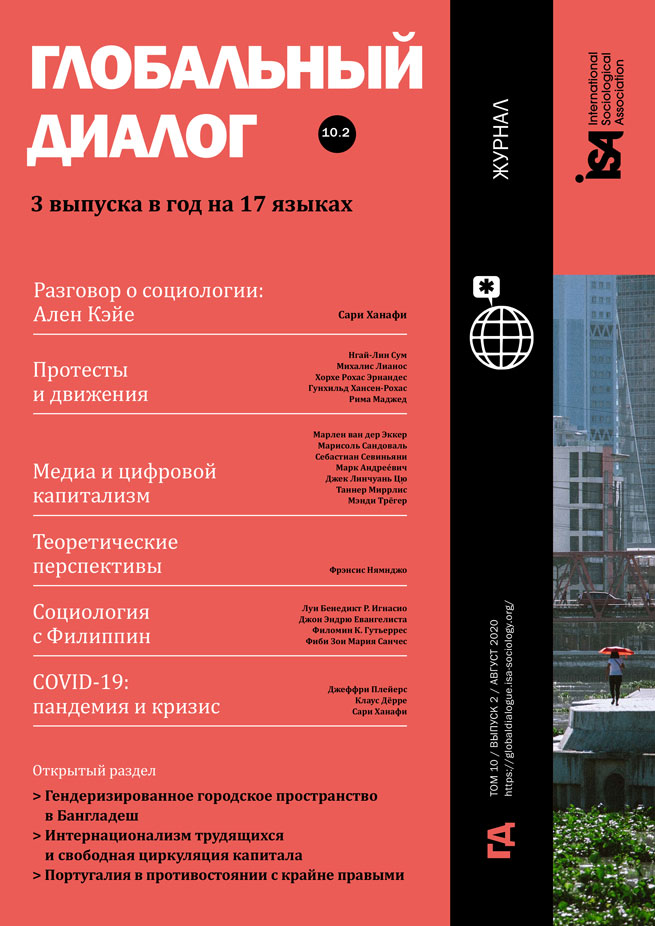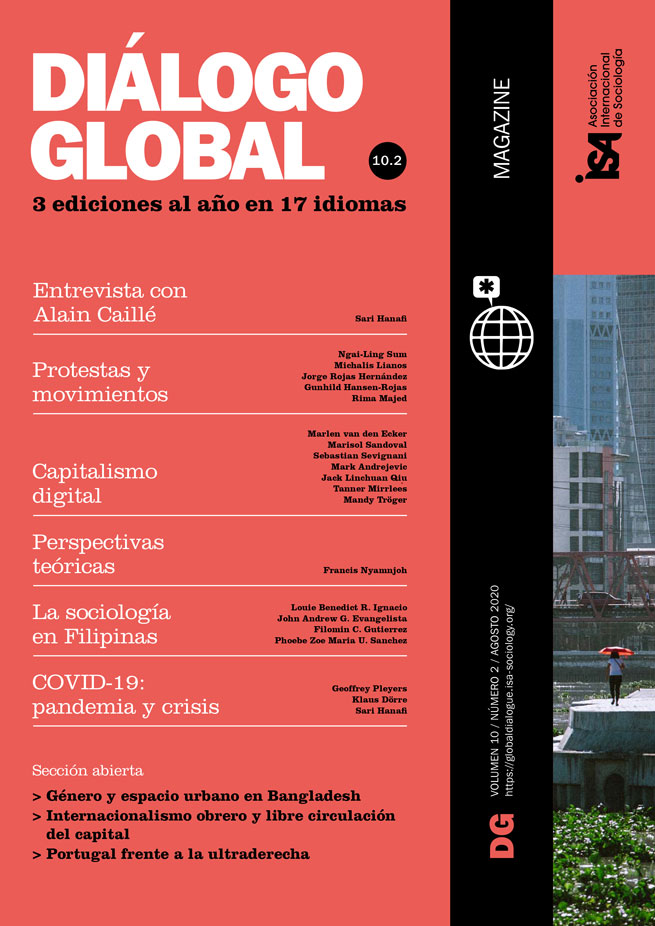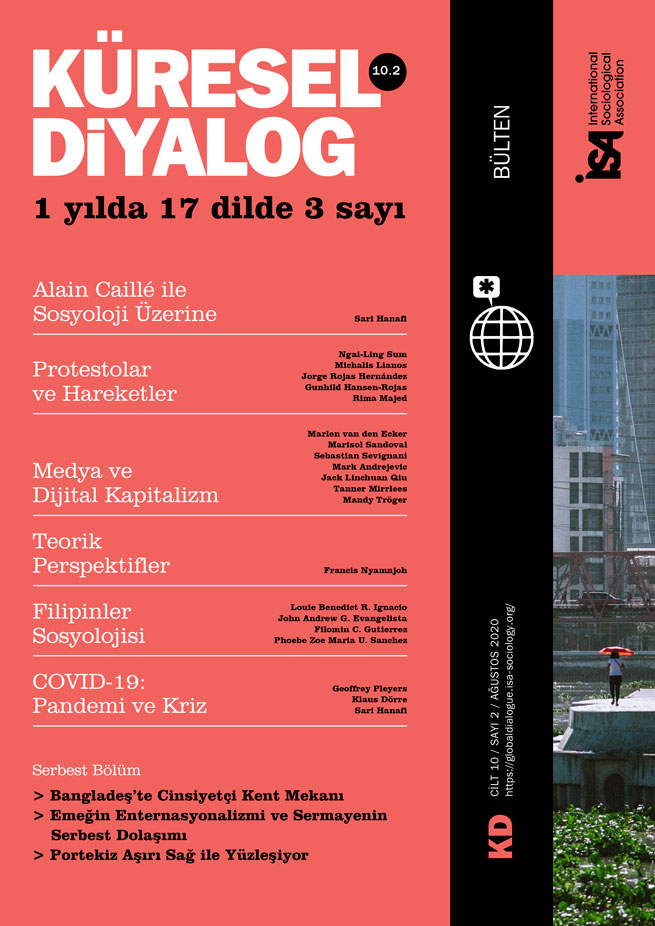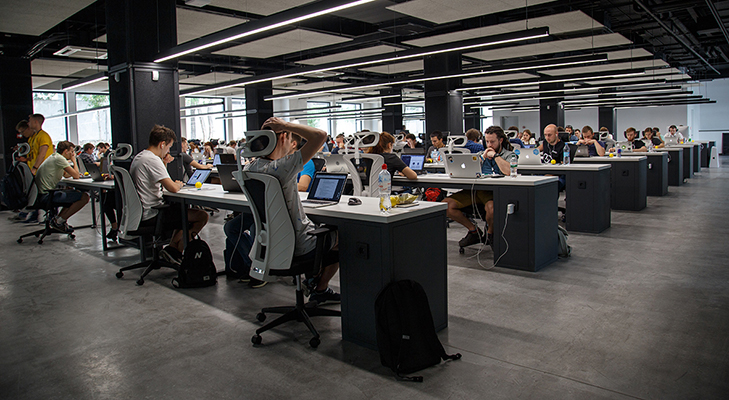Contemporary media technology develops and is used for communication within social conditions frequently referred to as “digital capitalism.” Different from the diagnoses of “postindustrial,” “informational,” or even a “global knowledge society,” “digital capitalism” expresses that social change simultaneously shows important continuities in respect to basic social relations of economic exploitation, cultural alienation, and political domination.
Digital capitalism plays out differently across the globe: While on this side of the world digital capitalism fosters the formation of creative and knowledge classes and spurs consumerism, on the other side millions of people earn their living by extracting the required raw materials or assembling components under adverse conditions. But there is also unity in diversity: Users serve as a new exploited class for social media platforms or digital media manufacturers. Surveillance technologies are threatening citizens’ personal rights. Capital-driven interests prevent the grassroots democratic and subversive potentials of self-organised media.
With the increasing relevance of digital media technology, critical media and communication sociology offers insights for our understanding of social change at large and even plays a pioneering role for our discipline. It contributes to labour and industrial sociology when it explains new waves of rationalisation, (de-)qualification, and the re-organisation of labouring activity and value chains. It interacts with economic and consumer sociology when it investigates the crucial role of big data, algorithms, targeted advertising, and digital platforms as new marketplaces. It cooperates with cultural and political sociology, coming to terms with the digital culture industries and the current transformation of the public spheres. And it stimulates social theory when it points to the fuzziness of the relation between communication and labour within digital phenomena such as “prosuming.”
The critical insights provided in the articles of this symposium hopefully make way for new initiatives to retrace these issues to their root.
Since existing critical social research seems to have little to say with regard to media and communication, and on the other hand communication research often leaves out problems of exploitation through digital work, Marisol Sandoval and Sebastian Sevignani link communication and labour by thinking through “digital exploitation.” It is often overlooked that the production of the contemporary global media culture relies on communication and cooperation – controlled and managed by Big Tech. As users of social media platforms, we function as unpaid digital workers for these companies, as they feed off people’s data traces.
The Australian scholar Mark Andrejevic also taps into the logic of data-driven business models. His article deals with the escalating tendency of automatically generated data and the role of its capitalist ownership and accumulation. Instead of asking whether automated systems should be employed, Andrejevic questions how they have been designed thus far.
Writing from Hong Kong, Jack Linchuan Qiu discusses the possibility of the formation of a new digital working class. The example of China suggests that governmental surveillance technologies are indeed powerful in exercising social control in terms of spatiality. Qiu however points out that, when focusing on different temporal patterns, the digital working class can unfold their subversive potential when they engage in collective disruptive actions such as work slowdown, sabotage, or strikes. The class struggle of digital workers is about pushing for new ways to gain temporal sovereignty.
Even if commonly framed in this way, our Canadian colleague Tanner Mirrlees doubts that China is a serious rival for the USA. He highlights that the USA not only possesses the greatest economic and military power: its digital technologies and cultural industries also far outstrip their Chinese competitors in terms of size, reach, and profits at the present time.
The final article, provided by our dear colleague Mandy Tröger, teaches us a history lesson on the post-socialist transformations of the media system after German reunification. In the spring of 1990, countless initiatives in the German Democratic Republic towards a free and democratic East German press were quickly overrun by a handful of West German political and economic groups who built market structures in their interest. This serves as a prime example of how, throughout history, media infrastructures with democratic potential have been repeatedly undermined by private economic interests.
Marlen van den Ecker, Friedrich Schiller University of Jena, Germany <marlen.van.den.ecker@uni-jena.de>
Sebastian Sevignani, Friedrich Schiller University of Jena and University of Paderborn, Germany <sebastian.sevignani@uni-jena.de>







